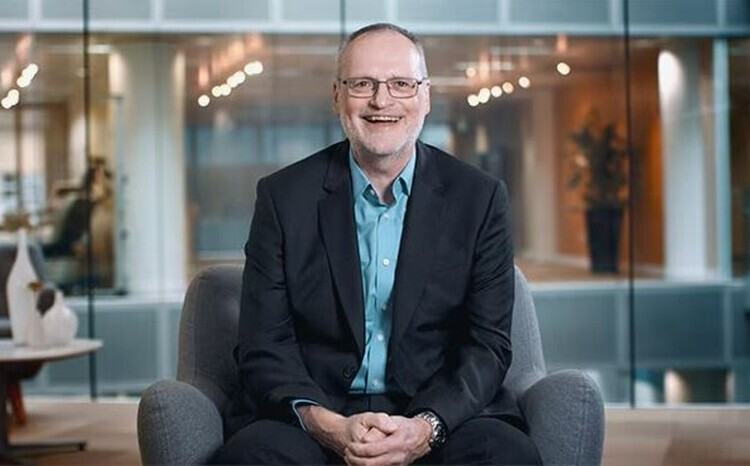The CIO interview: Ross Fullerton at London Ambulance Service
- 9 October 2017

In Digital Health’s first chief information officer (CIO) profile of an ambulance trust, Ross Fullerton at London Ambulance Service has stepped up. He decides to invite three athletic champions over for his fantasy dinner, and tells us how apps are over hyped.
Why did you become an NHS CIO?
How could I turn down the chance to help lead the digital transformation of London Ambulance Service? It’s a great organisation that performs a critical function 24 hours a day in one of the world’s most iconic cities. We have a huge opportunity to be more efficient, more effective and do an even better job for patients by successfully deploying digital technologies.
Within your organisation, what is the most significant digital achievement of the past 12 months?
Improving the tracking and use of controlled drugs by deploying a digital medicines management system at 70 ambulance stations across London as well as to our logistics teams and area managers. It has made a real difference to operational safety and we’ve learnt many lessons ahead of the wider rollout of digital devices.
What will be the most significant of the next 12 months?
Revolutionising patient care in each of our 32 clinical care commissioning groups by providing frontline ambulance crews with timely access to patient health records. We’ll be providing crews with personal issue tablets which they will use to access best practice care guidelines, identify appropriate care pathways and connect into the latest clinical data sets. Pathways can be a real challenge in London where our crews often find themselves working just a few miles away from their base but in an area where the service provision is completely different. To achieve this we will be going on a recruitment drive. In total we are recruiting for over 30 roles from business engagement to service and project delivery. We will be advertising the jobs publicly later on this month – so watch this space!
What’s the biggest barrier to being a more effective CIO?
Balancing the opportunities of the future with the need to run secure and resilient systems that are robust enough to underpin a 24/7 city.
What’s the biggest barrier the NHS faces overall in achieving digital transformation?
The UK is a great place to deliver digital transformation with a highly skilled workforce and supportive environment. The NHS needs to find ways of working with innovative organisations, break down traditional barriers to change and empower teams to drive change from within.
If you have one piece of advice for other NHS CIOs, what would it be?
The challenges we face are not unique to health. My career has been spent in energy, retail and other parts of the public sector. Get out there, talk to colleagues and peers but don’t stop there – look beyond the NHS and don’t get caught in the echo chamber.
Who in the NHS do you admire the most and why?
I’m amazed by the expertise of the call handlers in our control room. They never know what the next phone call will bring and can be helping talk someone through giving birth, supporting a patient with mental health challenges or someone who has had too much to drink. Their skills, patience and professionalism in a really challenging and time critical environment is incredible.
If you were given £30 million to spend on digital transformation within your trust, where would that money go?
Solving the data interoperability challenges across London and beyond. Once we’ve deployed digital devices to our clinicians we’ll quickly want to access and share timely information with health partners across London and nationally. We need to remember that several million people commute into London every day and we need to be able to access their health records too.
What is the most over-hyped digital innovation in health?
Apps. The Apple App Store is nearing 10 years old and the health sector has only just started to grasp the opportunity. New health apps are appearing daily and the innovation is fabulous however there’s will be consolidation once the new capability becomes a commodity. From a consumer perspective it’s already a far too fragmented marketplace which will inhibit adoption at scale.
What is the most under-rated digital innovation in the health?
Health professionals. They really do have the best ideas and really understand how to make a difference to patient care.
And a few non-digital questions, what’s the worst job you’ve ever had and why?
I’m lucky enough to have enjoyed all of my jobs; as a student I made ends meet working in Glasgow selling mountain bikes and car spares. I loved meeting people and learning about delivering great customer service.
If you could invite three people, alive or dead, to dinner who would they be and what would you serve them?
I’d love to hear Ayrton Senna, Muhammad Ali and Roger Federer compare how they managed to achieve such great success and what they’d do if they had their time over again.
What’s the background image on your home computer?
Always changing – I have a folder of favourites that include family holidays and loads of other memories from when I wasn’t chasing kids around.
What’s your favourite piece of technology at home and why?
Our Sonos wireless speakers are always on so that’s got to be the winner. Walking around the house hearing the same music in every room is brilliant.
If you could have any other job, what would it be?
I’d love to work in motorsport but suspect it’s not quite as glamorous as it appears.
In a film of your life, who would play you?
Liam Neeson.





1 Comments
The apps on a person’s mobile aren’t all that important, but in MPHO, what’s behind them, DATA, is critical, and the approach taken by health leaders needs to level the plhaying field, because that’s wot good IT … does.
Comments are closed.